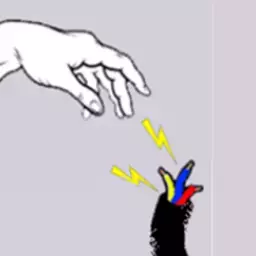Sublette County Sheriff K.C. Lehr has received more than 7,000 emails about a Wyoming man who reportedly captured and tormented a wolf before killing it, he told Cowboy State Daily on Wednesday.
Some of those are threats.
Lehr said people in his office, as well as Sublette County and Wyoming Game and Fish Department personnel, have been receiving threats — including death threats — stemming from Daniel, Wyoming, man Cody Roberts’ reported capture, torment and killing of a wild wolf in late February.


Most people are under the impression that the cow is dead before it hits the ground, and way before it even goes in the grinder for processing.
You’re still killing it. Would you think it’s okay to kill a dog for meat as long as it’s dead before it hits the ground?
Insofar as there’s no moral difference between killing a dog and a pig, yes.
Im genuinely curious, would you buy dog meat at the supermarket?
Depending on the price, taste, etc., I’d consider it an option
Ethically imo there is no difference between killing an cow/pig to eat and killing a dog/cat to eat
it’s one of the reasons i’m a vegetarian of almost 9 years.
That said, if it came down to a survival situation i’d have no problem killing and eating an animal… ethically speaking
While I agree with your statement about survival, buying meat from a supermarket has nothing to do with survival (which is what 99% of people are doing).
Floey is implying that the rearing of domesticated animals is inherently torturous.
Inherently? No, that’s not needed to construct Floey’s argument. Floey’s argument requires only that the meat producing process be practically torturous. And it is. Most chickens are raised in quarters so cramped that they need to be debeaked so they won’t peck each other to death from the stress.
I don’t think you should speak for Floey, and you definitely don’t need to be preaching to me. I’m mostly vegan already, aside from some dairy products I use in baking. I will say though, those factory farms are actually the more environmentally conscious solution as it doesn’t impact local biodiversity and has lower emissions or land usage per lbs of meat produced.